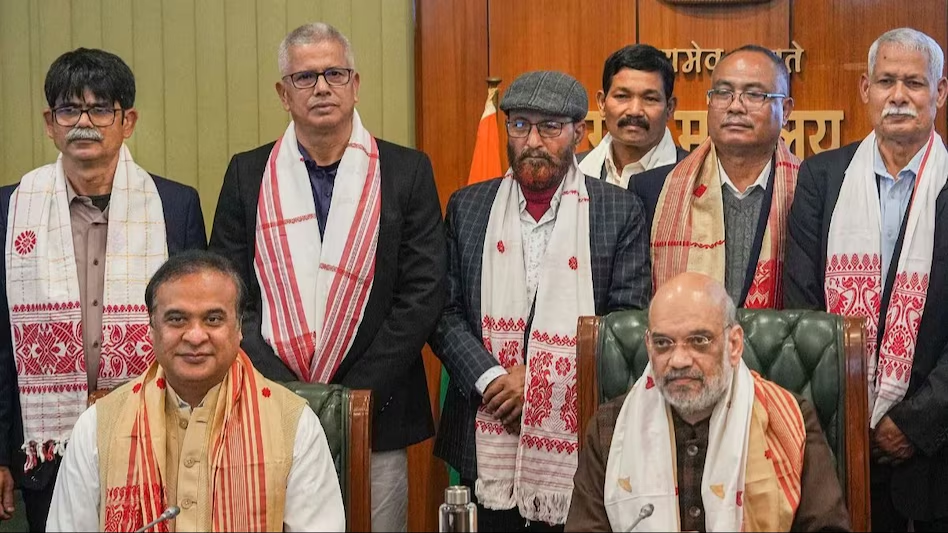Fostering peace and stability in the region, the Assam government has formed a specialized committee tasked with evaluating the rehabilitation requirements of former United Liberation Front of Assam (ULFA) insurgents who have laid down their arms.
The decision comes against the backdrop of renewed efforts by the state administration to integrate former militants into mainstream society and provide them with opportunities for a fresh start. Led by Chief Minister Himanta Biswa Sarma, the initiative underscores the government’s commitment to address the longstanding grievances and challenges faced by ex-combatants, thereby facilitating their smooth reintegration into civilian life.
The committee, comprising experts from various fields including social work, psychology, and law enforcement, has been entrusted with the responsibility of conducting comprehensive assessments of the surrendered ULFA cadres. Through individual consultations and field visits, the committee members will gather firsthand insights into the specific needs and aspirations of the former militants, taking into account factors such as their socio-economic background, educational qualifications, and vocational skills.
Speaking on the establishment of the committee, Chief Minister Sarma emphasized the importance of providing holistic support to the surrendered insurgents, recognizing that their successful reintegration is crucial for the overall peace and development of the state. He reiterated the government’s commitment to offering rehabilitation programs tailored to the unique circumstances and aspirations of each individual, thereby enabling them to lead dignified and productive lives.
To a Great Start
The initiative reflects a proactive approach by the Assam government in addressing the complex challenges associated with insurgency and conflict resolution. By engaging with former militants in a constructive manner, the authorities aim to create pathways for reconciliation and social inclusion, thereby mitigating the risk of recurrence of violence and extremism in the region.
The rehabilitation process is expected to encompass a wide range of support mechanisms, including counseling and psychosocial assistance to help former insurgents overcome the trauma and psychological scars of their past experiences. Additionally, vocational training programs will be designed to equip them with practical skills and opportunities for sustainable livelihoods, enabling them to become self-reliant and contributing members of society.
Moreover, the committee will work closely with various government agencies and civil society organizations to facilitate access to essential services such as healthcare, education, and housing for the rehabilitated ULFA cadres. Specialized interventions will be devised to address the specific needs of vulnerable groups, including women and children associated with the insurgents, ensuring their rights and welfare are safeguarded throughout the rehabilitation process.
The establishment of the committee marks a significant milestone in the ongoing efforts to achieve lasting peace and reconciliation in Assam. It underscores the importance of a multi-dimensional approach that goes beyond mere law enforcement measures, emphasizing the need for holistic interventions that address the root causes of conflict and promote social cohesion and inclusivity.
In recent years, Assam has witnessed a gradual decline in insurgent activities, with a growing number of militants voluntarily surrendering their weapons and expressing willingness to reintegrate into mainstream society. The government’s proactive stance in facilitating their rehabilitation underscores its commitment to nurturing a climate of trust and cooperation, wherein former insurgents are provided with opportunities for redemption and a second chance at life.
As the committee embarks on its mission to assess the rehabilitation needs of surrendered ULFA cadres, it represents a beacon of hope for peace and reconciliation in the region. Through concerted efforts and inclusive strategies, the Assam government aims to build a future where the scars of conflict are healed, and all communities can thrive in harmony and prosperity.

